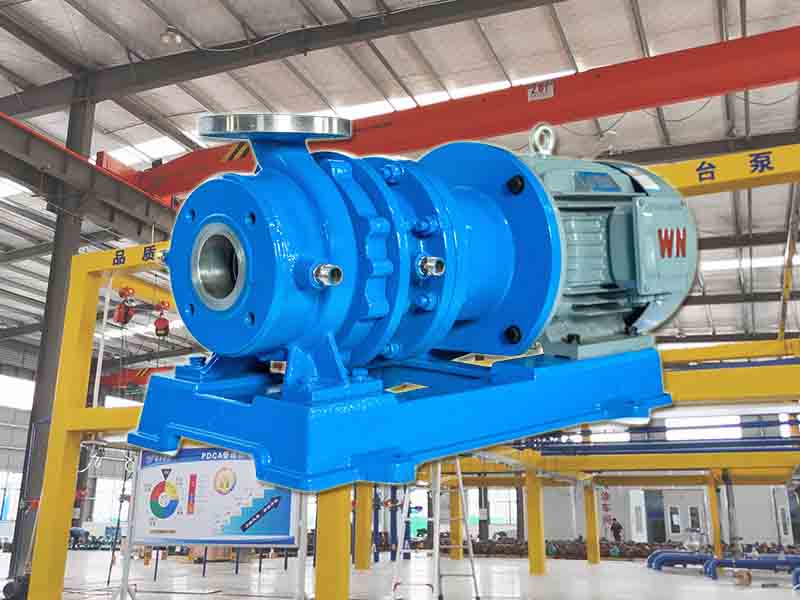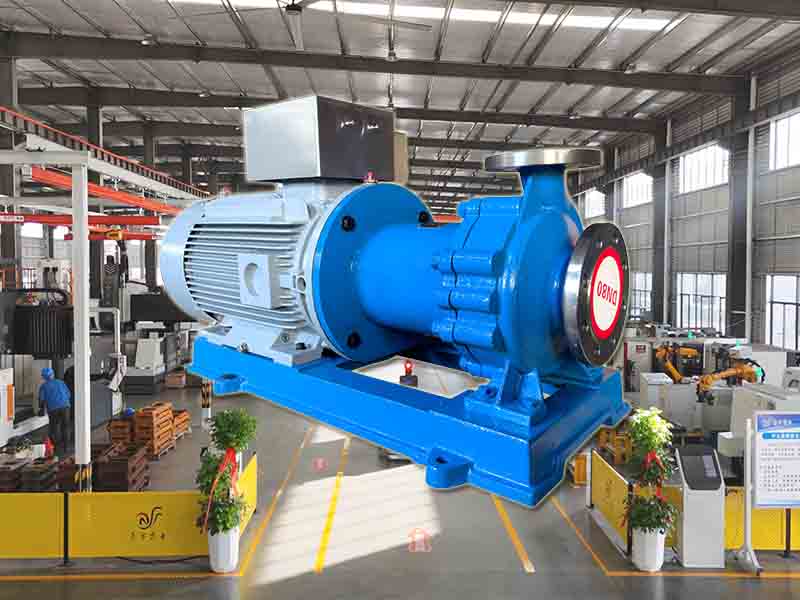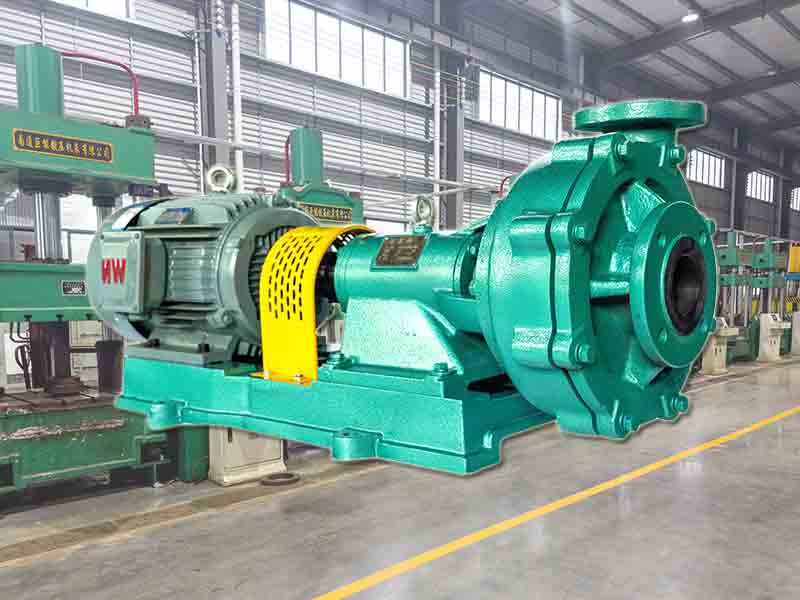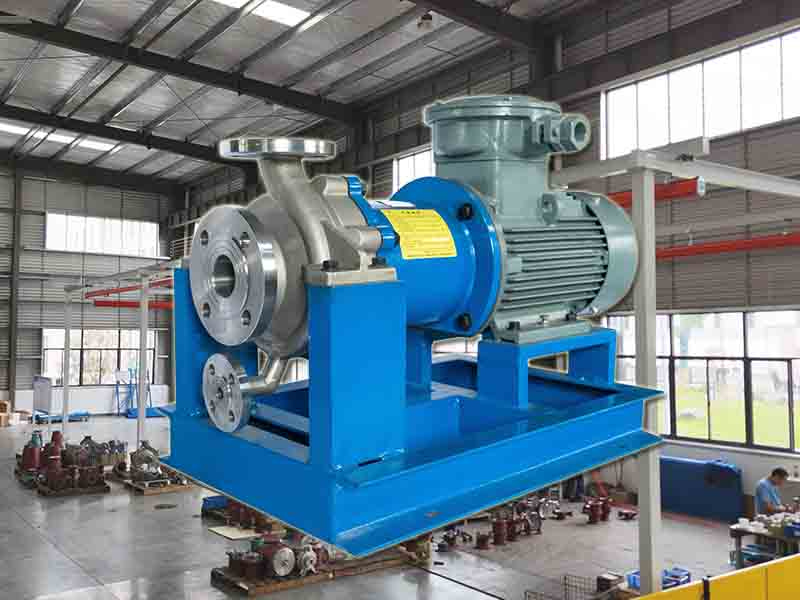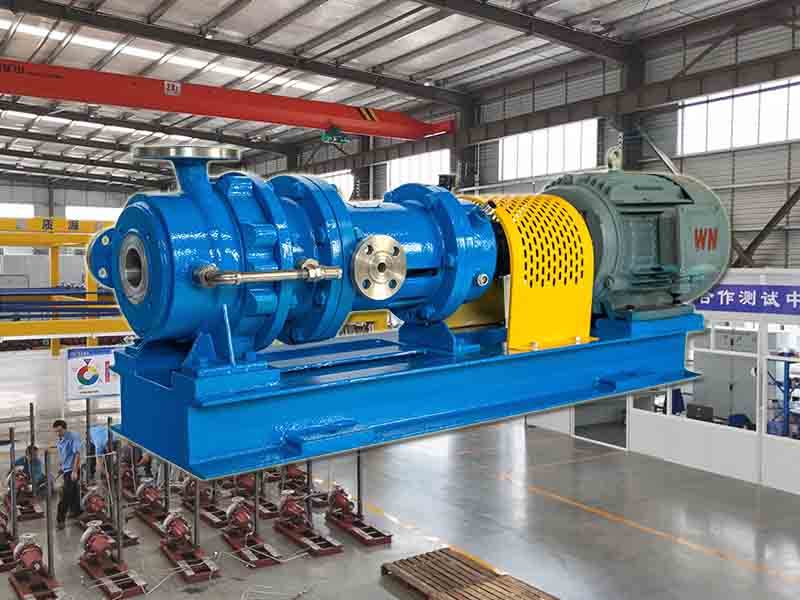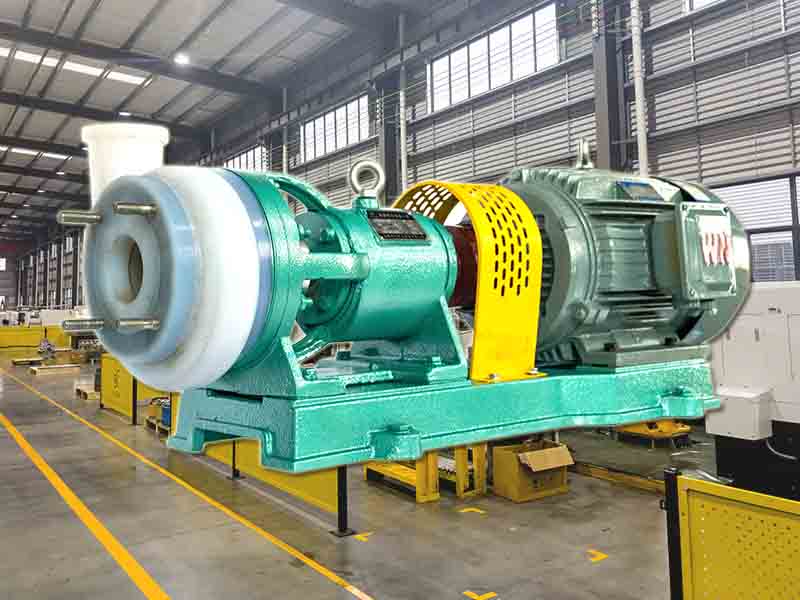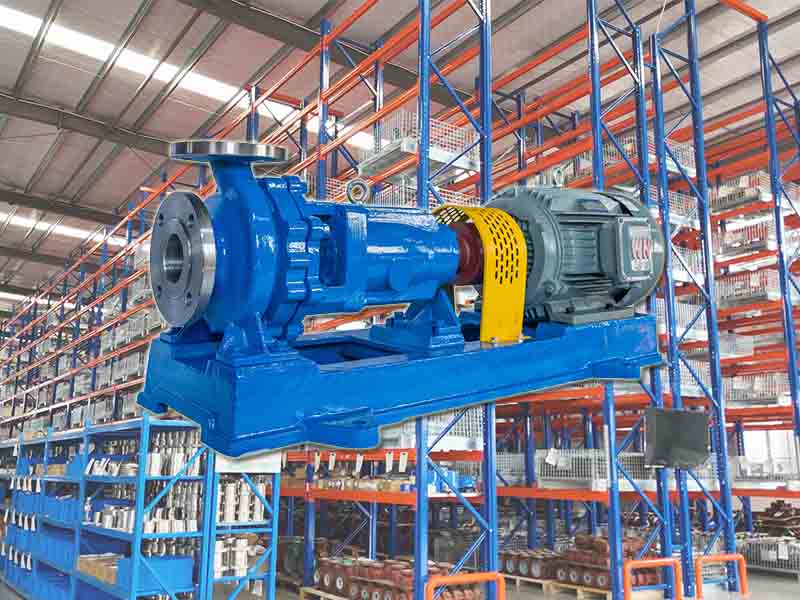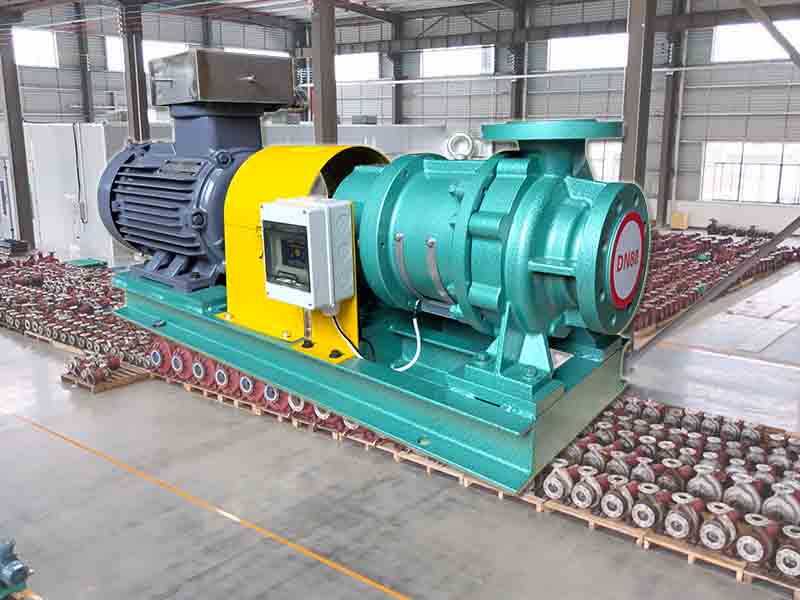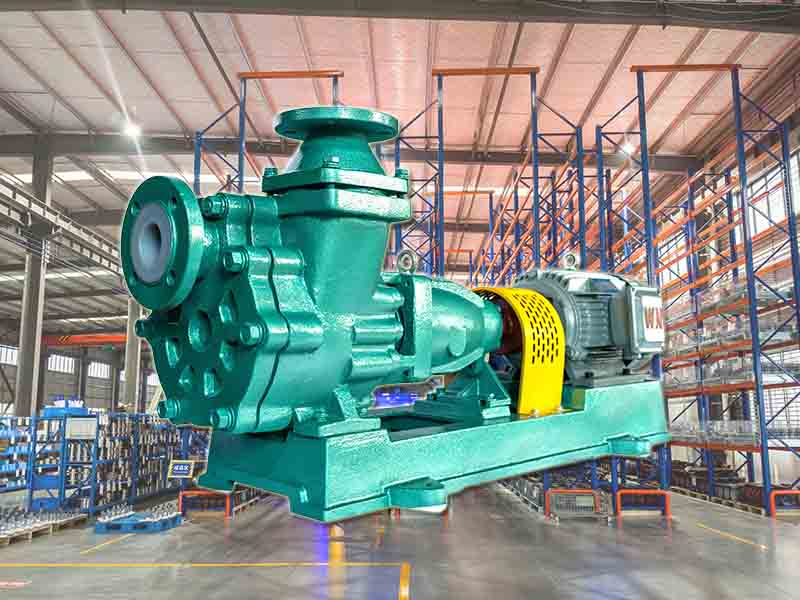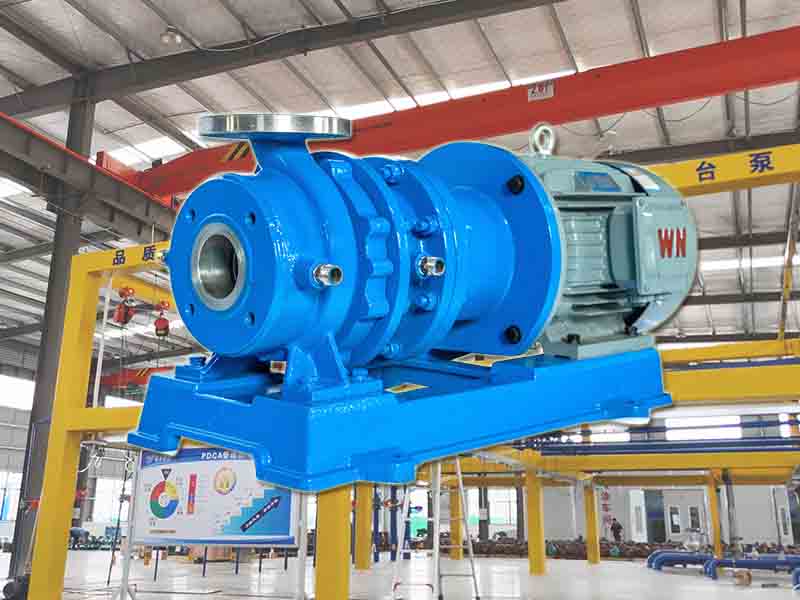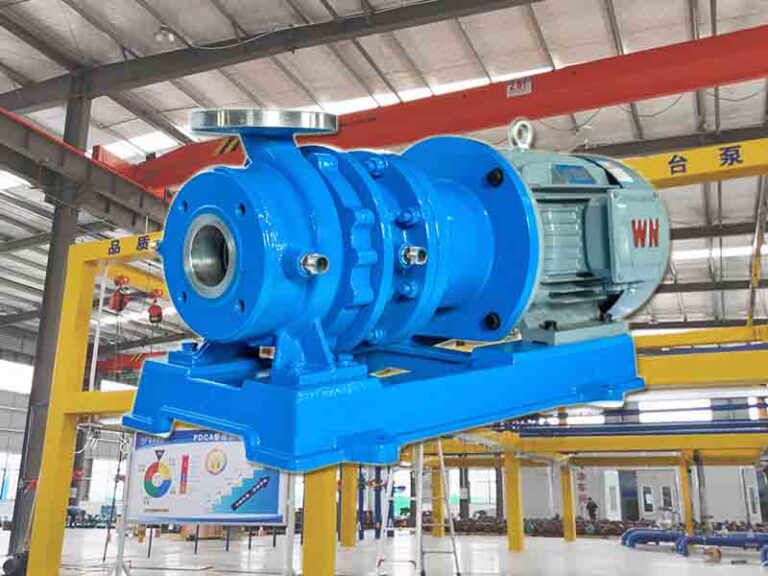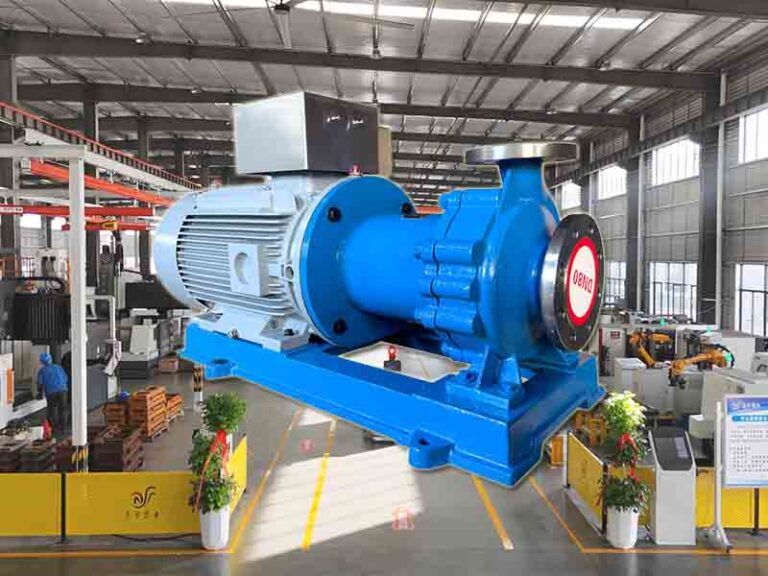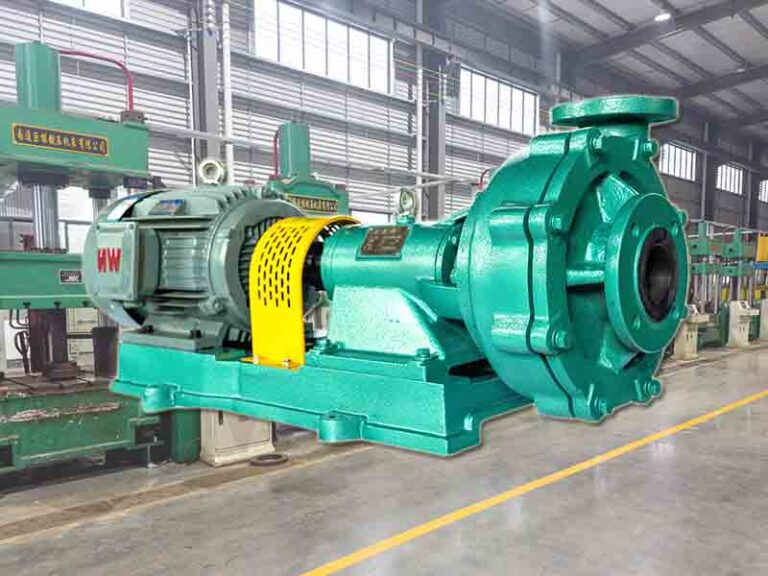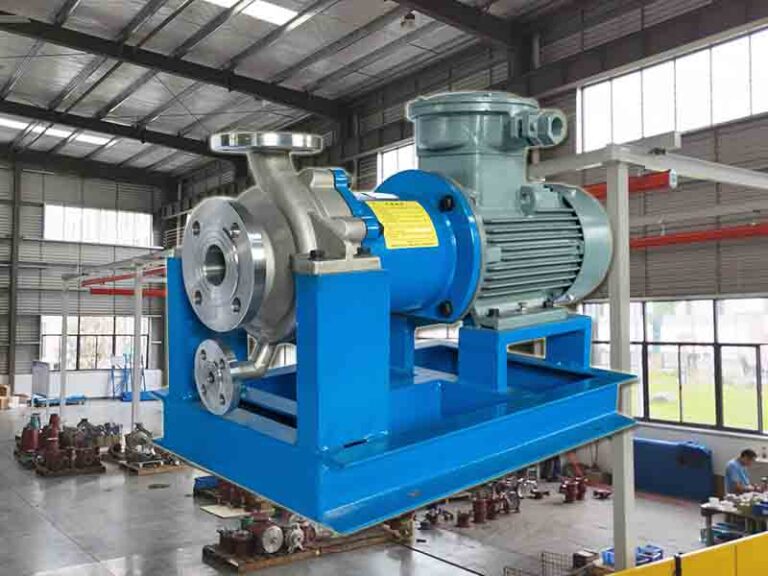1. Working Principle of magnetic pump
Magnetic pump, also known as magnetic centrifugal pump. It is a new product that applies the working principle of permanent magnetic coupling to a centrifugal pump. Magnetic pumps are mainly divided into many types. Fluoroplastic magnetic pumps. Stainless steel magnetic pumps. Corrosion-resistant magnetic pumps. Engineering plastic magnetic pumps. Self-priming magnetic pumps. High-temperature magnetic pumps. Multi-stage magnetic pumps, etc.
Magnetic pump, the main feature is the use of magnetic coupling of the outer magnet rotates. The magnetic line of force through the gap and the isolation sleeve, act on the inner magnet. So that the pump shaft and the motor rotate synchronously, creating a conta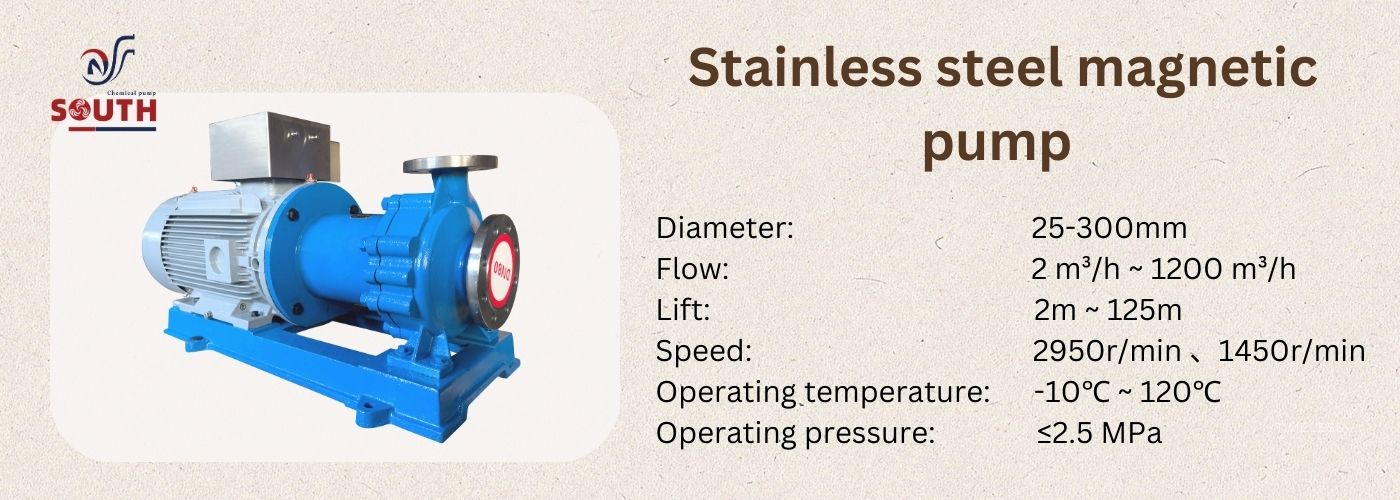 ctless transmission of torque. At the power input end of the pump shaft, as the liquid is enclosed in the static isolation sleeve, there is no dynamic sealing. Thus solving the phenomenon of running, risking, dripping, and leaking which is inevitable in the petrochemical industry. And there is no leakage at all. This type of pump is suitable for conveying toxic, hazardous, flammable, explosive, and precious liquid media, to create no leakage, w pollution civilized workshop, civilized factory ideal pump.
ctless transmission of torque. At the power input end of the pump shaft, as the liquid is enclosed in the static isolation sleeve, there is no dynamic sealing. Thus solving the phenomenon of running, risking, dripping, and leaking which is inevitable in the petrochemical industry. And there is no leakage at all. This type of pump is suitable for conveying toxic, hazardous, flammable, explosive, and precious liquid media, to create no leakage, w pollution civilized workshop, civilized factory ideal pump.
2. Where are magnetic pumps used for
(1)Magnetic pump in Chemical Industry
Magnetic pumps can be used in the chemical industry because the chemical industry often needs to handle a variety of highly corrosive, highly toxic, or high-temperature liquids, such as strong acids, strong alkalis, organic solvents, etc., and traditional mechanical pumps on the market often have the risk of leakage and damage, so magnetic pumps have become the only choice for transporting liquids in the chemical industry. Magnetic pumps achieve power transmission through magnetic coupling, and the completely sealed structure effectively avoids these problems, ensuring the safety and environmental protection of the production process. Whether it is conveying corrosive liquids, organic matter, or solvents, magnetic pumps can do the job and are an ideal choice for the chemical industry.
(2)Magnetic industrial pump in Electricity Industry
In the electricity industry, it is often necessary to transport cooling water, lubricating oil, and handle some special liquids in nuclear power plants. These media often have high requirements for the sealing and corrosion resistance of the pump. The magnetic pump can meet these requirements at the same time. In addition, the leakage-free design of the magnetic pump can avoid a series of dangers caused by liquid leakage, which can ensure the safe operation of power facilities.
(3)Chemical magnetic pump in the Food processing and beverage industry
Magnetic pumps are also suitable for the food processing and beverage industry. Due to the leak-free and sealed design of magnetic pumps, they will not pollute the liquid, so they are very suitable for transporting liquids such as food and beverages. Whether it is transporting high-viscosity liquids such as sauces and syrups, or processing other food raw materials, magnetic pumps can ensure the hygiene and quality safety of the products. In addition, magnetic pumps can also avoid hygiene problems and pump blockage problems caused by the accumulation of other materials in the pump, thereby improving production efficiency and product quality.
(4)Magnetic pump in the environmental protection and water treatment industry
Magnetic pumps also play an important role in the environmental protection and water treatment industry. They are widely used in environmental protection projects such as wastewater treatment and corrosive liquid treatment. The high efficiency and leak-free performance of magnetic pumps help reduce the emission of pollutants and the risk of leakage, and protect the environment and human health. 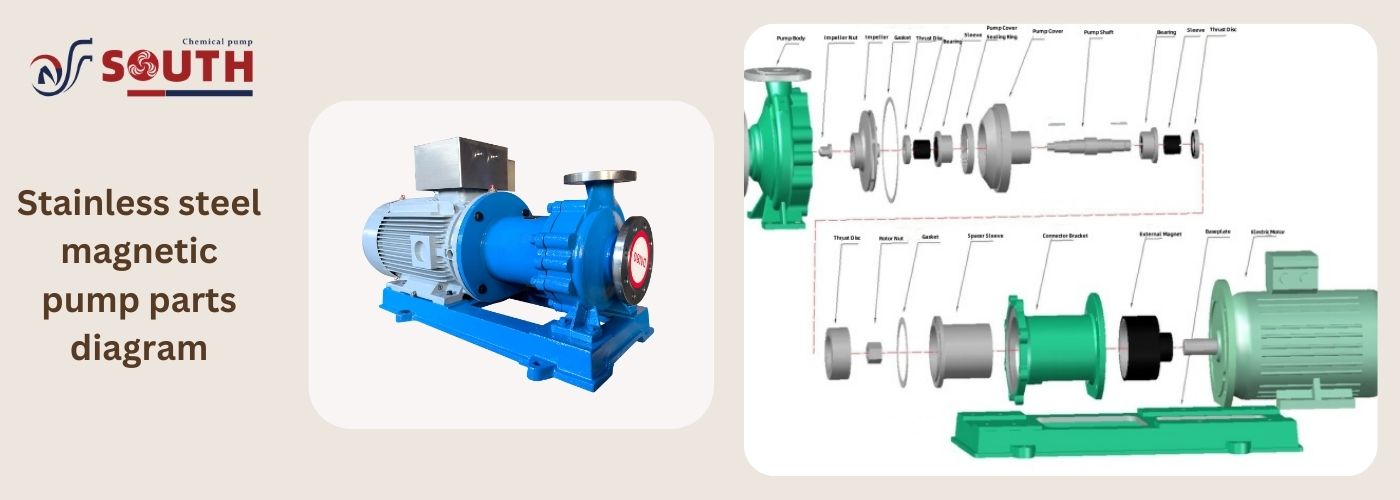
3. How to choose a suitable pump?
Flow requirements:
Clarify the flow range you need to ensure that the magnetic pump can meet the expected fluid delivery requirements.
Lift requirements:
Determine the required lift range based on the height difference and friction resistance of the conveyed liquid.
Temperature requirements:
Understand the temperature range of the conveyed liquid to select suitable magnetic pump materials and sealing systems
Material selection:
The material of the magnetic pump directly affects its corrosion resistance. Select suitable materials such as stainless steel, plastic, etc. according to the properties of the conveyed liquid. For corrosive liquids, choose materials with good corrosion resistance, such as 316 stainless steel; for chemical delivery, you can choose chemically resistant plastic materials.
Sealing performance:
The sealing performance of the magnetic pump directly affects its service life and safety. Choose products with good sealing performance to ensure no leakage. Magnetic pumps usually have only static seals and no dynamic seals, which is one of its major advantages.
Brand and quality:
Choose well-known brands and reliable quality products to avoid buying low-quality magnetic pumps. The brand’s reputation and long-term market performance are important indicators for evaluating its product quality and performance
4. About South Pump Factory
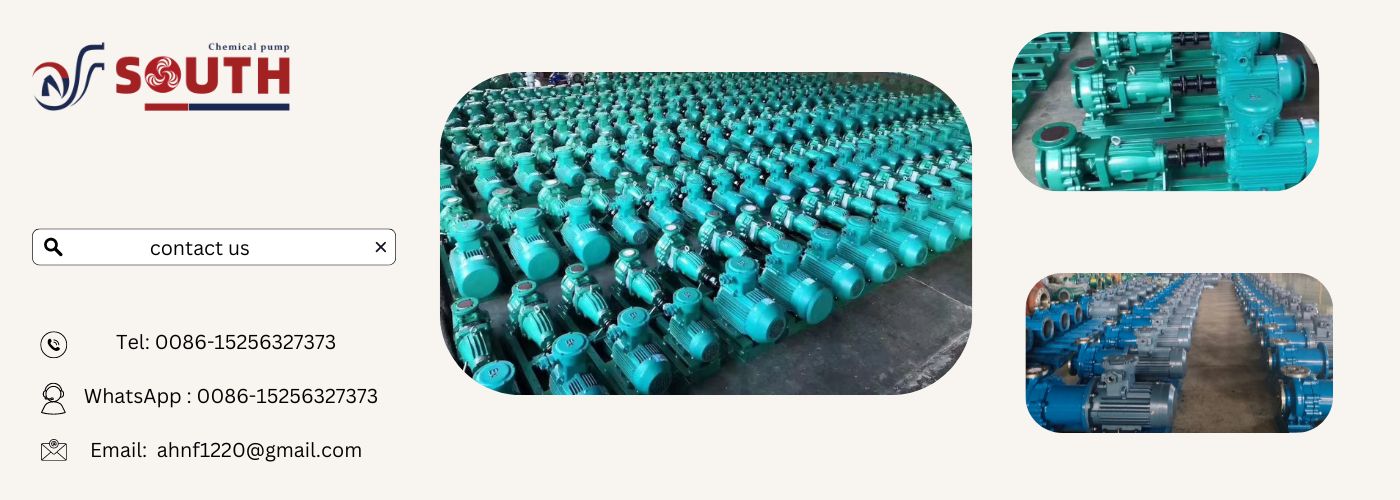
As a global centrifugal pump manufacturer, South Pump has a rich history of providing reliable and efficient pumping solutions to customers worldwide. Our state-of-the-art manufacturing facilities, skilled engineers, and stringent quality control processes ensure that our centrifugal pumps are of the highest quality, performance, and durability. We offer a diverse range of centrifugal pumps that cater to various industries, including oil and gas, water and wastewater, chemicals, mining, and more.
